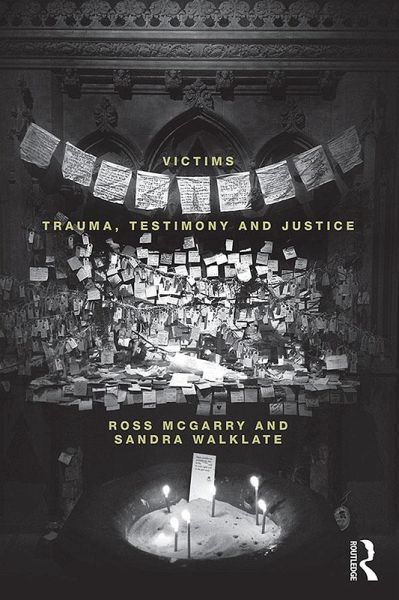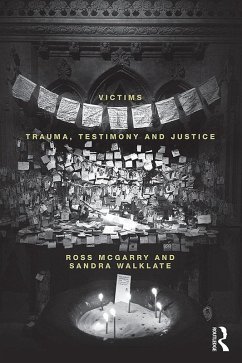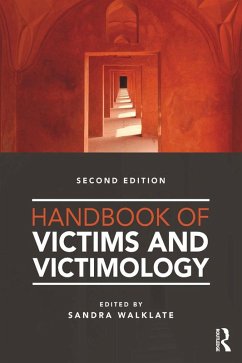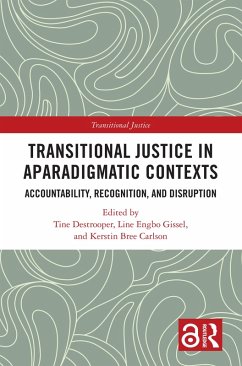
Victims (eBook, ePUB)
Trauma, testimony and justice
Versandkostenfrei!
Sofort per Download lieferbar
41,95 €
inkl. MwSt.
Weitere Ausgaben:

PAYBACK Punkte
21 °P sammeln!
The study of victims of crime is a central concern for criminologists around the world. In recent years, some victimologists have become increasingly engaged in positivist debates on the differences between victims and non-victims, how these differences can be measured and what could be done to improve the victims' experience of the criminal justice system. Written by experts in the field, this book embraces a much wider understanding of social harms and asks which victims' voices are heard and why.McGarry and Walklate break new ground with this innovative and accessible book; it offers a broa...
The study of victims of crime is a central concern for criminologists around the world. In recent years, some victimologists have become increasingly engaged in positivist debates on the differences between victims and non-victims, how these differences can be measured and what could be done to improve the victims' experience of the criminal justice system. Written by experts in the field, this book embraces a much wider understanding of social harms and asks which victims' voices are heard and why.
McGarry and Walklate break new ground with this innovative and accessible book; it offers a broad discussion of social harms, the role of the victim in society and the inter-relationship between trauma, testimony and justice and asks:
Each chapter draws on case studies and a range of questions designed to assist in reflection and critical engagement. This book is perfect reading for students taking courses on victimology, victims and society, victims' rights and criminal justice.
McGarry and Walklate break new ground with this innovative and accessible book; it offers a broad discussion of social harms, the role of the victim in society and the inter-relationship between trauma, testimony and justice and asks:
- how has harm been understood and under what circumstances have those harms been recognised?
- how and under what circumstances are those harms articulated?
- how and under what circumstances are the voices of those who have been harmed listened to?
Each chapter draws on case studies and a range of questions designed to assist in reflection and critical engagement. This book is perfect reading for students taking courses on victimology, victims and society, victims' rights and criminal justice.
Dieser Download kann aus rechtlichen Gründen nur mit Rechnungsadresse in A, B, BG, CY, CZ, D, DK, EW, E, FIN, F, GR, HR, H, IRL, I, LT, L, LR, M, NL, PL, P, R, S, SLO, SK ausgeliefert werden.













